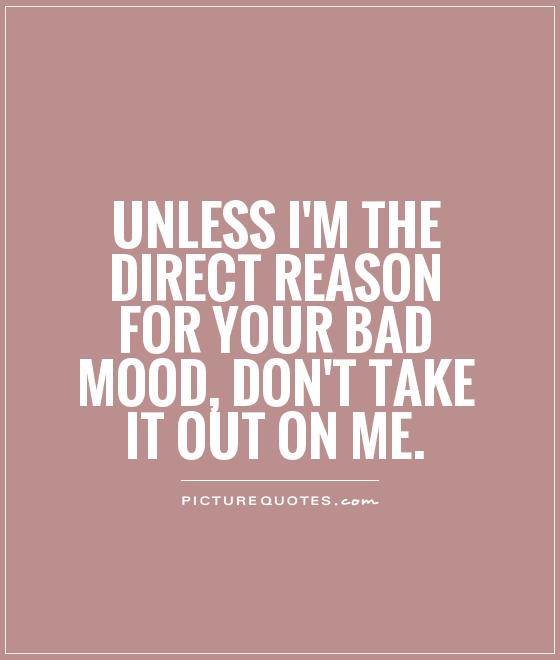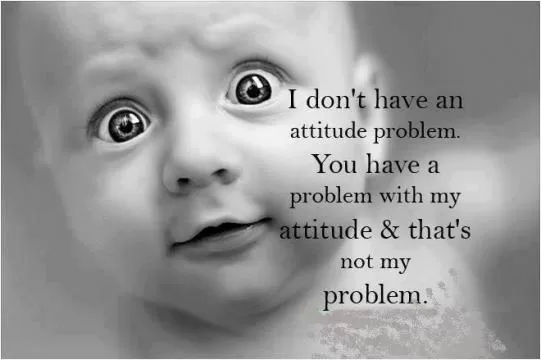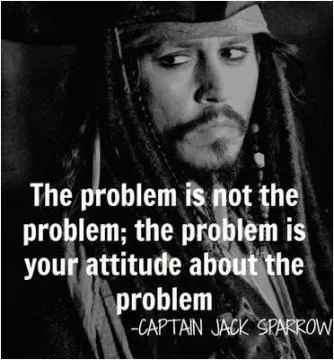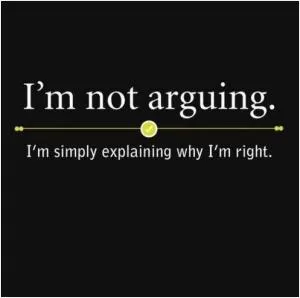Unless I'm the direct reason for your bad mood, don't take it out on me

Unless I'm the direct reason for your bad mood, don't take it out on me
Attitude words play a significant role in how we interact with others and how we perceive the world around us. One common phrase that reflects the importance of attitude in relationships is, “Unless I'm the direct reason for your bad mood, don't take it out on me.” This statement highlights the idea that individuals should not project their negative emotions onto others, especially when those individuals are not the cause of those emotions.When someone is in a bad mood, it can be easy to lash out at those around them, even if those individuals have done nothing wrong. This can create tension and conflict in relationships, as the person in the bad mood may say hurtful things or act in a way that is unkind or disrespectful. In these situations, it is important for both parties to remember the impact of their words and actions on the other person.
By recognizing that their bad mood is not the fault of the other person, individuals can take steps to manage their emotions in a healthy way. This may involve taking a step back to reflect on the source of their bad mood, practicing self-care techniques such as deep breathing or mindfulness, or seeking support from a therapist or counselor. By addressing their emotions in a constructive manner, individuals can prevent unnecessary conflict and maintain positive relationships with those around them.
On the other hand, it is also important for individuals to set boundaries and communicate their needs to others. If someone is consistently taking out their bad mood on others, it is important for those individuals to speak up and assert themselves. By expressing their feelings and setting boundaries, individuals can create a healthier dynamic in their relationships and foster mutual respect and understanding.












 Friendship Quotes
Friendship Quotes Love Quotes
Love Quotes Life Quotes
Life Quotes Funny Quotes
Funny Quotes Motivational Quotes
Motivational Quotes Inspirational Quotes
Inspirational Quotes